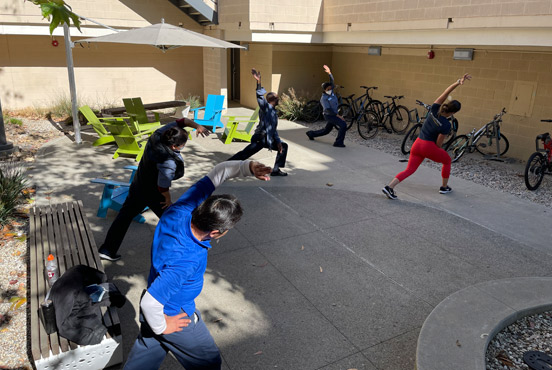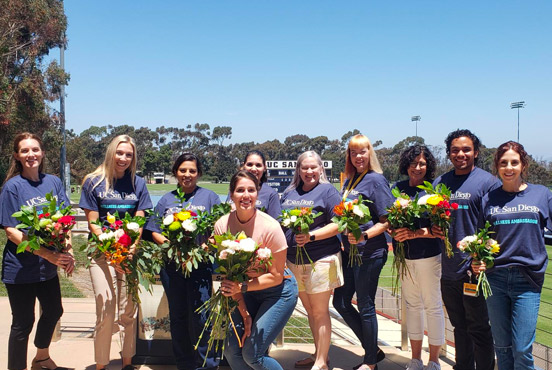Employee Wellness
Last Updated: January 28, 2026 4:43:03 PM PST
Give feedback
Find health and wellness information for UCSD campus staff & faculty, including postdocs.
Bright Breaks
¡AHORA SE OFRECE EN ESPAÑOL! Bright Breaks is available to all campus and Health Science career employees. Enjoy 7-minute wellness breaks on your own or with your team, restore your body and mind, and win weekly prizes!
Join us at the 2026 Employee Wellfest Monday 3/23, 10-2
Subscribe to the Employee Wellness monthly newsletter!
Programs
Check out the enrollment-based programs that UC San Diego has to offer!
Resources
Learn more about helpful resources at UC San Diego
Physical
- UC San Diego Recreation
- Fitlife Mobile
- UCSD Health Sleep Center
- Center for Integrative Health
- Ergonomics
- Smoke Free UC San Diego
- Walk UCSD
- UCSD Menopause Support Group
Mental
- Faculty and Staff Assistance Program
- BrightLife Kids
- Free behavioral health for California kids age 0-12
- Soluna
- Free mental health support and resources for Californians 13-25 years old
- Center for Mindfulness
- UCSD Office for Equity, Diversity, and Inclusion
- UCSD Substance Abuse Support
- Insight Timer
- Free meditation app for stress/anxiety/sleep
- Veterans Suicide Prevention
Nutritional
- Porchlight Community Services
- Pay $40 for $150+ worth of groceries! Open to all, no income restrictions.
- Center for Integrative Nutrition
- Nutrition services through UCSD Recreation
- UC Agriculture and Natural Resources Food Blog
- CalFresh Food Assistance Program
- Mas Fresco
- UCSD HDH Dining Services
- Farm Fresh To You: Get 20% of your first 5 boxes with code UCSD
Financial
- Discounts for UCSD Employees
- Financial Services from Fidelity
- University Credit Union Learning Center
Social
Medical
Environmental & Community
- UCSD Sustainablity
- UCSD Planning, Design, and Construction
- UCSD Transportation Services
- UC Carbon Neutrality Initiative
- Anthem Blue Cross Social Services Finder
- UCSD Center for Community Health
Safety
Get Involved!
Volunteer Opportunities
See what opportunities exist among the UC San Diego community.
Follow us on social media!








